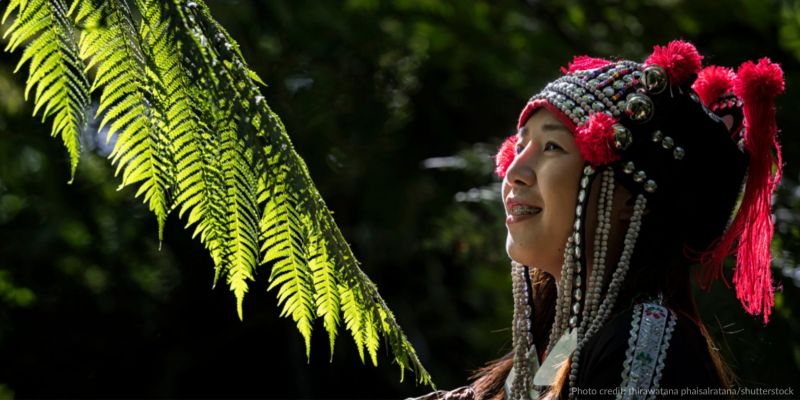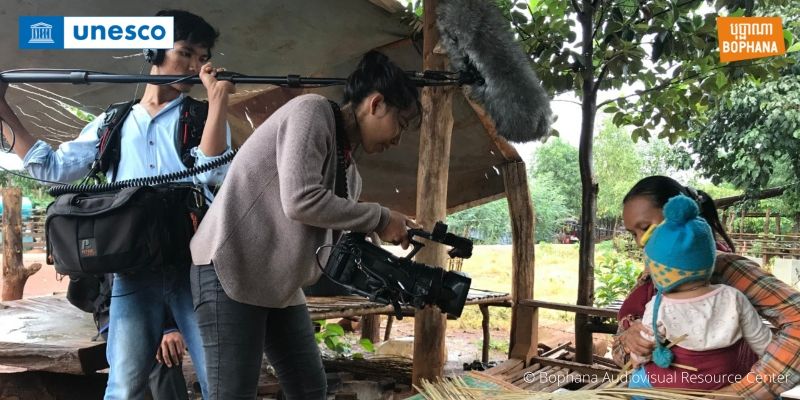Youth in East and Southeast Asia confront the COVID-19 pandemic: It’s time we listen to them
Like so many of her generation, Pauline Mandrilla, a 23-year-old civil engineer from suburban Manila, suddenly found herself jobless when the COVID-19 pandemic impacted the region in mid 2020. Pauline felt like a statistic, as she joined the ranks of some 22 per cent of unemployed Philippine youth affected by the pandemic’s economic fallout.
‘During the onset of the pandemic, we were placed in a no-work, no-pay situation’, Pauline recalled. ‘My previous job heavily relied on my being physically present on a construction site, but because of the quarantine restrictions, which halted public transportation in my region, I couldn't go to work’.
Pauline’s story is familiar to many youth throughout East and Southeast Asia. Often popularly regarded as the most “connected” generation in history – a reference to their ability to regularly partake of global developments through the internet – young people in the region ages 15 to 30 are nonetheless grappling with a ‘new normal’ represented by the pandemic. While those without internet access have been left behind during their countries’ shift to online learning, others have found that self-directed learning is very much a challenge. Recent graduates who were able to successfully navigate these online complexities are now discovering even greater hurdles in one of the most volatile job markets in history. The current youth unemployment numbers in Singapore and Korea, which in both countries exceeds 10 per cent, provide clear indicators of this bracing reality.
Perhaps even more troubling are the impacts of the pandemic on mental health and well-being. The uncertainty of the current and future job market, combined with the isolation of online learning and the everyday threat of getting sick, have only served to create negative, long-term impacts on the mental health of youth in the region. In a 2020 study published in the Journal of Population and Social Studies on the mental health effects of COVID-19 on over 1,000 higher education students in China, Indonesia, Malaysia, and Thailand, 38 per cent of students surveyed indicated that they had experienced ‘mild-to-moderate’ depression and anxiety, while just over 20 per cent reported regularly experiencing ‘severe anxiety’.
While such challenges paint a vivid picture of the obstacles affecting the stability of youth, they arguably also mask more positive trends in development. Young people are now seeking new opportunities to help their communities. Rather than allowing for isolation and uncertainty to completely discourage them, many are actively responding to the situation and using it as an opportunity to raise their voices. For Pauline and thousands like her, the impacts of COVID-19 were enough to inspire her to improve herself, as well as similarly uplift others in her country. During six months of unemployment, Pauline joined a UNESCO-supported initiative that trained young people to investigate the impacts of COVID-19 on others of their generation, and to create policy recommendations based on their findings. To provide an idea of the level of enthusiasm experienced by young people for such a program, Pauline was among 6,000 applicants to 300 volunteer positions. Notably, nearly two-thirds of these applicants came from the Asia-Pacific region alone!
It is often said that young people are best positioned to understand the challenges affecting others like them. Yet, the opportunities for young people throughout the region to share in policy decision-making by governments in the region, or to help influence civic or community program development, remain severely limited. Common reasons offered against engaging youth in decision-making processes is that youth lack the knowledge or maturity to understand complex situations and to create appropriate policy responses to them. In other words, decisions regarding the well-being of young people are often made for them, and not with them.
Rather than dismissing our region’s youth as incapable of making informed decisions regarding their own futures, we must actively encourage and foster the enthusiasm they are demonstrating during the current pandemic. When youth recognize the power within themselves to improve their own circumstances, and when they pro-actively seek out platforms where they can act upon their novel ideas and approaches to social issues with fresh eyes, the possibilities for positive action and change are endless. Volunteer initiatives such as Youth as Researchers not only help to focus and refine youth voices, encourage youth evidence-based advocacy, and enhance youth capacity building opportunities; in addition, they present youth with opportunities for building global connections in an interconnected, global society.
Young people in the region will have to live with the long-term impacts of this pandemic, as well as contend with unforeseen consequences of decisions made ‘in the moment’, as we all will. With this in mind, investment in the future must involve youth voices, and meaningfully and substantially engage youth in decisions that will affect them well into the future. Evidence-based advocacy training is just one option among many worth exploring in that direction. As Pauline’s story reminds us, COVID-19 has severely disrupted the lives of many youth around the world; however, the ways in which they are joining together to take action for themselves is testament to the kind of incredible resilience that young people are so well-known for. It is a resilience that will help guide all of us through this crisis if we let it.
For more information: https://yar.bangkok.unesco.org/
By Laura Guay and David Young
Laura Guay is a consultant for UNESCO focusing on youth engagement and empowerment;
David Young is the Youth Programme Specialist at UNESCO Bangkok, where he manages and supports initiatives on building youth leadership through research, policy development, literacy, and media advocacy.
|
In the pursuit of peace and an efficient recovery from the COVID-19 pandemic, the voices of Youth should play a dynamic role in every society. Yough possess unique and creative perspecitves on issues, challenges, and collective ambitions that face all of us, both regionally and globally, and it's time we paid attention to Youth's desire to be an essential 'part of the discussion'! |
*This article was first published in South China Morning Post, 9 October 2021







